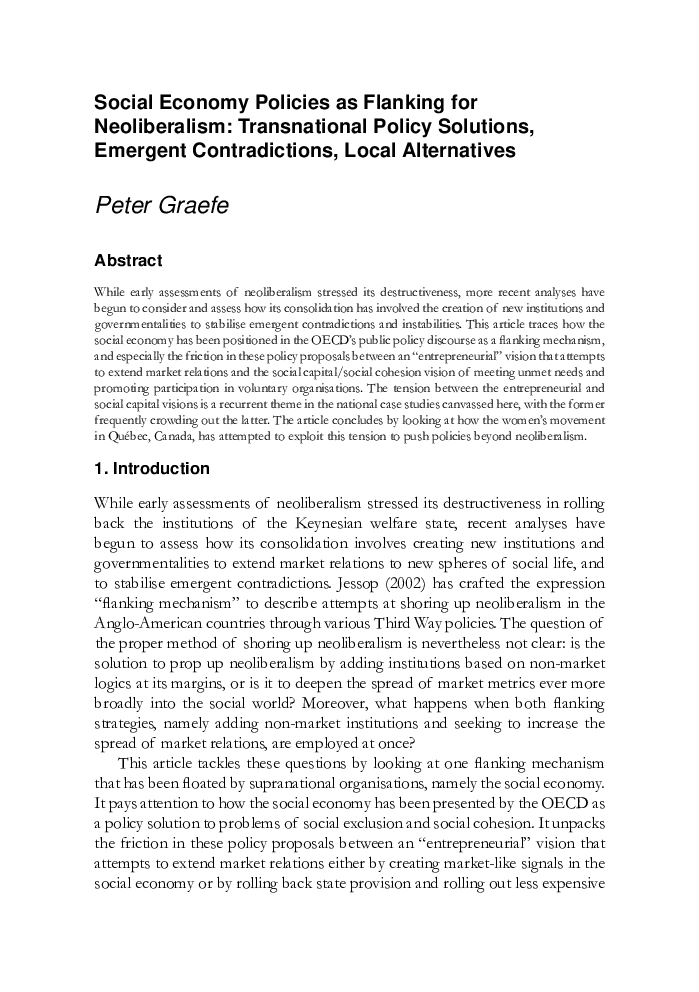| Article ID | Journal | Published Year | Pages | File Type |
|---|---|---|---|---|
| 1061664 | Policy and Society | 2006 | 18 Pages |
While early assessments of neoliberalism stressed its destructiveness, more recent analyses have begun to consider and assess how its consolidation has involved the creation of new institutions and governmentalities to stabilise emergent contradictions and instabilities. This article traces how the social economy has been positioned in the OECD's public policy discourse as a flanking mechanism, and especially the friction in these policy proposals between an “entrepreneurial” vision that attempts to extend market relations and the social capital/social cohesion vision of meeting unmet needs and promoting participation in voluntary organisations. The tension between the entrepreneurial and social capital visions is a recurrent theme in the national case studies canvassed here, with the former frequently crowding out the latter. The article concludes by looking at how the women's movement in Québec, Canada, has attempted to exploit this tension to push policies beyond neoliberalism.
